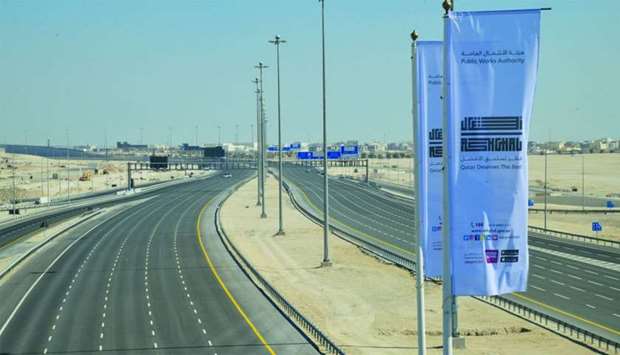Some 85% of Ashghal’s total anticipated expenditure of QR45bn will be spent on local roads and highways over the five years from 2019 through to 2023, a report by Oxford Business Group (OBG) has shown.
Qatar has worked diligently to develop an extensive road network, with Ashghal announcing in April 2018 that the country’s total road length more than tripled from 1,700km in 2013 to 6,000km by the end of 2018, OBG said in its ‘The Report: Qatar 2019’.
This expansion has largely taken place under Ashghal’s Expressway Programme for the development of 800km of expressways, and the "Local Roads and Drainage Programme" to lay 4,000km of smaller roads and install drain infrastructure.
In the 2019 Qatari budget, QR49.4bn (or 24%) of total projected spending was allocated to infrastructure, transportation and communication, with significant portions of this going towards road and rail projects. The 2019 funding represents the continuation of a trend stretching back to 2013 that has seen the government outlay upwards of 20% of its total annual budget on infrastructure, OBG noted.
In December 2018, business intelligence firm MEED had named the Public Works Authority (Ashghal) and Qatar Rail – the authorities responsible for developing the country’s road and rail networks – as the second- and fourth-largest bodies, respectively, in the GCC by infrastructure project awards between 2013 and 2018. During this time combined awards totalled approximately $36bn.
With Qatar’s 2022 FIFA World Cup plans aiming to create the shortest travel times between stadiums in the history of the competition, establishing a local rail network in Doha before that time is "crucial". Beyond the event, investment in public transport embodies the Qatar National Vision 2030 commitment to sustainable living. Most vital to these plans is the $36bn Doha Metro.
The first phase will comprise three lines running over 85km in length that will connect all but one of the competition’s eight stadiums with downtown Doha. Capable of reaching speeds of 100km per hour, the metro will be one of the fastest of its kind in the world and has already won awards for its design.
At Legtaifiya station the metro will connect to a second key rail development due in 2020, the Lusail Tram, which saw its first test run in June 2018. The 28km, three-line network will have 25 stations and facilitate movement around Lusail, which is due to be the location of the 2022 FIFA World Cup final, the report said.


